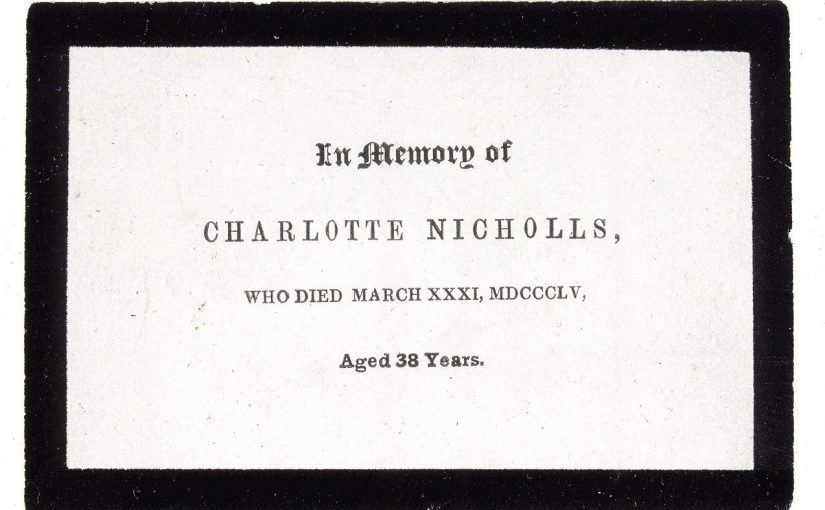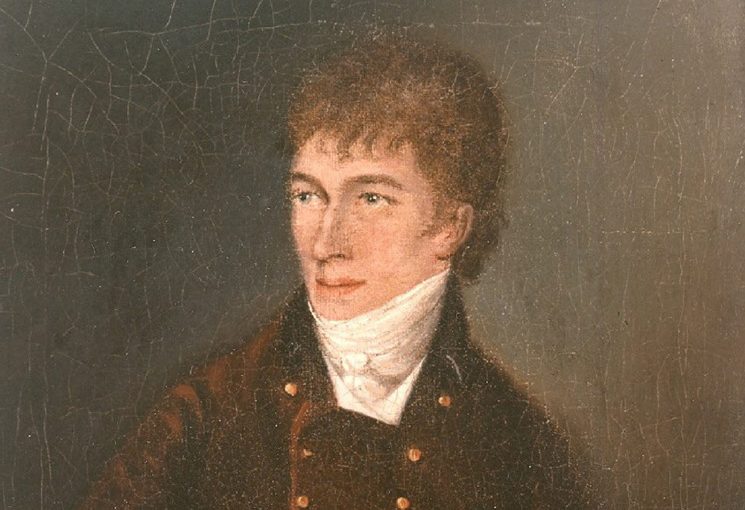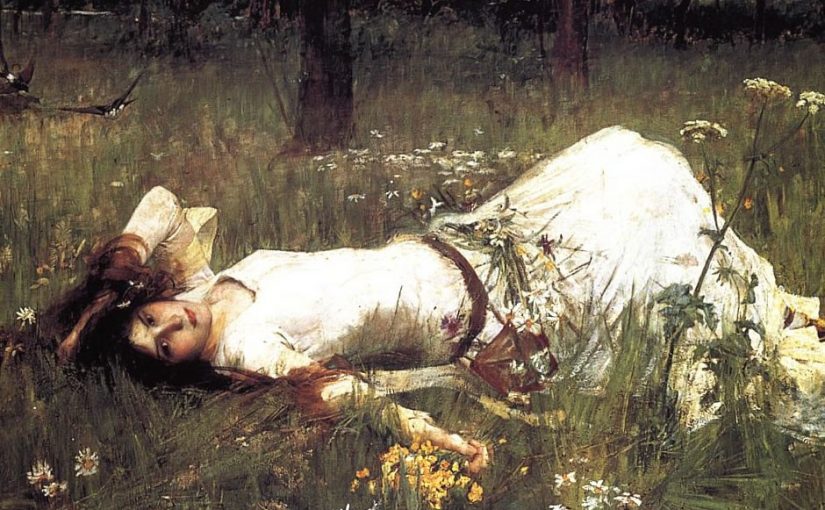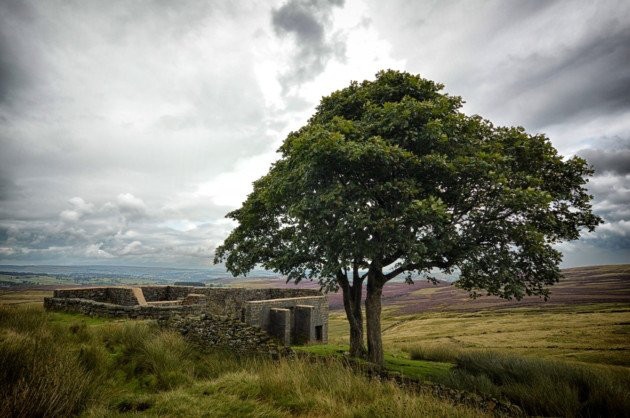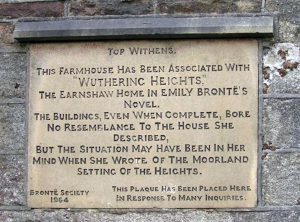31 March 1855, Arthur Bell Nicholls writes to Ellen, ’Our dear Charlotte is no more – She died last night of Exhaustion … We intend to bury her on Wednesday morn[in]g’. Ellen later recollected her subsequent visit to Haworth in a letter to George Smith the following year. She reported:
’her death chamber is in vivid remembrance … Her maid Martha brought me a tray full of evergreens & such flowers as she could procure to place on the lifeless form … what made the [task] impossible at first was the rushing recollection of the flowers I spread in her honour at her wedding breakfast & how she admired the disposal of the gathering brought by Martha from the village gardens – ’
Månad: mars 2017
Patrick Brontës födelsedag!
Den 17 mars 1777 föddes Patrick Brontë, systrarna Brontës far, i Drumballyroney, County Down på Irland. Hans efternamn namn skrevs då omväxlande som ”Brunty”, ”Prunty” och ”Bruntee”. När han började i Cambridge bytte han namn från Brunty till det mer originella och imponerande Brontë. Kanske ville han ta efter sin hjälte Nelson, som 1799 blivit hertig av Brontë. Brontë är också det grekiska ordet för åska. Han använde olika accenter ovanför ”e” i sitt efternamn men när han började ge ut samlingar med poesi och prosa använde tryckeriet trema och det var den accenten som hans barn lade sig till med.
Så här sa han på sin ålders höst:
Hade jag räknats till världens lugna, stillsamma, sansade män skulle jag inte ha blivit som jag nu är och jag skulle sannolikt aldrig ha fått sådana barn som mina har varit.
Charlotte Brontë nobbar en friare
Så här skrev Charlotte till väninnan Ellen Nussey för precis 187 år sedan:” On the matter of Henry Nussey’s proposal, 12 March 1839: ’Now my dear Ellen there were in this proposal some things that might have proved a strong temptation – I thought if I were to marry so, Ellen could live with me and how happy I should be. but again I asked myself two questions – Do I love Henry Nussey as much as a woman ought to love the man her husband? Am I the person best qualified to make him happy? – Alas Ellen my Conscience answered ’no’ to both these questions. I felt that though I esteemed Henry – though I had a kindly leaning towards him because he is an amiable – well-disposed man yet I had not, and never could have that intense attachment which would make me willing to die for him – and if ever I marry it must be in that light of adoration that I will regard my Husband ten to one I shall never have the chance again but n’importe. Moreover I was aware that Henry knew so little of me he could hardly be conscious to whom he was writing – why it would startle him to see me in my natural home-character he would think I was a wild, romantic enthusiast indeed – I could not sit all day long making a grave face before my husband – I would laugh and satirize and say whatever came into my head first – and if he were a clever man & loved me the whole world weighed in the balance against his smallest wish should be as light as air – ’
Top Withens
Bilden visar ruinerna efter gården Top Withens i närheten av Haworth, där familjen Brontë bodde. En del anser att den är förebilden för familjen Earnshaws gård i Wuthering Heights – alltså där Catherine Earnshaw växte upp.
Men när gården var intakt hade den ingen likhet med den gård som Emily Brontë skriver om. Däremot kan hon ha haft gårdens läge högt upp på hedarna i åtanke när hon skrev boken. Så här står det på minnesplaketten som sitter uppsatt på ruinerna:
Så här skriver berättaren i Wuthering Heights, mr Lockwood, om landskapet: ”This is certainly a beautiful country! In all England, I do not believe that I could have fixed on a situation so completely removed from the stir of society.”
